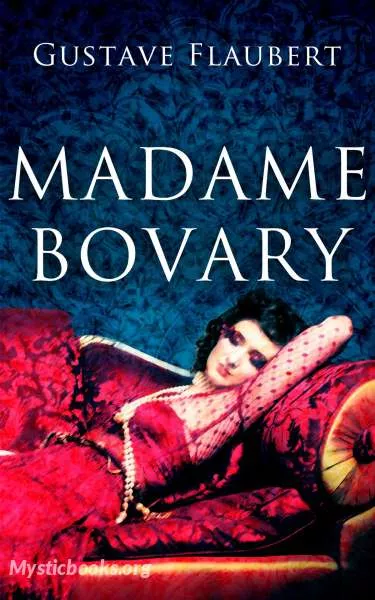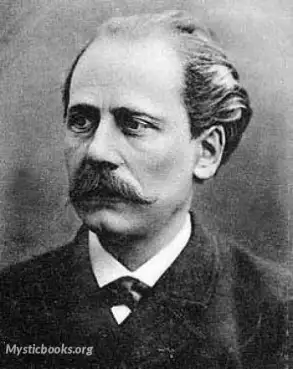
Madame Bovary
'Madame Bovary' Summary
Madame Bovary takes place in provincial northern France, near the town of Rouen in Normandy. Charles Bovary is a shy, oddly dressed teenager arriving at a new school where his new classmates ridicule him. Charles struggles his way to a second-rate medical degree and becomes an Officier de santé in the Public Health Service. He marries the woman his mother has chosen for him, the unpleasant but supposedly rich widow Héloïse Dubuc. He sets out to build a practice in the village of Tôtes.
One day, Charles visits a local farm to set the owner's broken leg and meets his patient's daughter, Emma Rouault. Emma is a beautiful, poetically dressed young woman who has received a "good education" in a convent. She has a powerful yearning for luxury and romance inspired by reading popular novels. Charles is immediately attracted to her, and visits his patient far more often than necessary, until Héloïse's jealousy puts a stop to the visits.
When Héloïse unexpectedly dies, Charles waits a decent interval before courting Emma in earnest. Her father gives his consent, and Emma and Charles marry.
The novel's focus shifts to Emma. Charles means well but is plodding and clumsy. After he and Emma attend an elegant ball given by the Marquis d'Andervilliers, Emma finds her married life dull and becomes listless. Charles decides his wife needs a change of scenery and moves his practice to the larger market town of Yonville (traditionally identified with the town of Ry). There, Emma gives birth to a daughter, Berthe, but motherhood proves a disappointment to Emma. She becomes infatuated with Léon Dupuis, an intelligent young man she meets in Yonville. Léon is a law student who shares Emma's appreciation for literature and music and returns her esteem. Concerned with maintaining her self-image as a devoted wife and mother, Emma does not acknowledge her passion for Léon and conceals her contempt for Charles, drawing comfort from the thought of her virtue. Léon despairs of gaining Emma's affection and departs for Paris to continue his studies.
One day, a rich and rakish landowner, Rodolphe Boulanger, brings a servant to the doctor's office to be bled. He casts his eye over Emma and imagines she will be easily seduced. He invites her to go riding with him for the sake of her health. Charles, solicitous for his wife's health and not at all suspicious, embraces the plan. Emma and Rodolphe begin an affair. She, consumed by her romantic fantasy, risks compromising herself with indiscreet letters and visits to her lover. After four years, she insists they run away together. Rodolphe does not share her enthusiasm for this plan and on the eve of their planned departure, he ends the relationship with an apologetic, self-effacing letter placed at the bottom of a basket of apricots delivered to Emma. The shock is so great that Emma falls deathly ill and briefly returns to religion.
When Emma is nearly fully recovered, she and Charles attend the opera, at Charles' insistence, in nearby Rouen. The work being performed that evening was Gaetano Donizetti's Lucia di Lammermoor, based on Walter Scott's 1819 historical novel The Bride of Lammermoor. The opera reawakens Emma's passions, and she re-encounters Léon who, now educated and working in Rouen, is also attending the opera. They begin an affair. While Charles believes that she is taking piano lessons, Emma travels to the city each week to meet Léon, always in the same room of the same hotel, which the two come to view as their home. The love affair is ecstatic at first, but Léon grows bored with Emma's emotional excesses, and Emma grows ambivalent about Léon. Emma indulges her fancy for luxury goods with purchases made on credit from the crafty merchant Lheureux, who arranges for her to obtain power of attorney over Charles' estate. Emma's debt steadily mounts.
When Lheureux calls in Bovary's debt, Emma pleads for money from several people, including Léon and Rodolphe, only to be turned down. In despair, she swallows arsenic and dies an agonizing death. Charles, heartbroken, abandons himself to grief, preserves Emma's room as a shrine, and adopts her attitudes and tastes to keep her memory alive. In his last months, he stops working and lives by selling off his possessions. His remaining possessions are seized to pay off Lheureux. When he finds Rodolphe and Léon's love letters, he breaks down for good. He dies, and his young daughter Berthe is placed with her grandmother, who soon dies. Berthe then lives with an impoverished aunt, who sends her to work in a cotton mill. The book concludes with the local pharmacist Homais, who had competed with Charles' medical practice, gaining prominence among Yonville people and being rewarded for his medical achievements.
Book Details
Language
EnglishOriginal Language
FrenchPublished In
1856Authors

Gustave Flaubert
France
Gustave Flaubert was a French novelist. Highly influential, he has been considered the leading exponent of literary realism in his country. According to the literary theorist Kornelije Kvas, "in Flaub...
Books by Gustave FlaubertDownload eBooks
Listen/Download Audiobook
Related books

David Elginbrod by George MacDonald
David Elginbrod is an 1863 novel by George MacDonald. It is MacDonald's first realistic novel.

Historia de una anguila y otras historias by Anton Chekhov
''Historia de una anguila y otras historias'' is a collection of short stories by Anton Chekhov, known for his masterful portrayal of ordinary lives...

Untilled Field by George Moore
George Moore's *The Untilled Field* is a collection of short stories that explores the lives of people in rural Ireland at the end of the 19th century...

Emily Fox-Seton by Frances Hodgson Burnett
This novel is divided into 2 parts. The first, "The Making Of A Marchioness" tells about the odd courtship of Emily and lord Walderhurst. The second p...

Complete Original Short Stories of Guy de Maupassant by Guy de Maupassant
Guy de Maupassant's 'Complete Original Short Stories' is a collection of some of the most celebrated short stories in world literature. Maupassant, a...

Mare au diable by George Sand
Sur l'avis de son beau-père, malgré sa réticence, le laboureur Germain, veuf de vingt-huit ans, va se rendre à Fourche pour rencontrer celle qui devie...

Girl From the Marsh Croft by Selma Lagerlof
This collection includes 'The Girl from the Marsh Croft,' a novella featuring a woman who has strayed from societal norms and finds redemption through...

Don Quijote 1 by Miguel de Cervantes Saavedra
Don Quijote de la Mancha (ortografía y título original —1605—, El ingenioso hidalgo Don Quixote de la Mancha) es una de las obras cumbre de la literat...

Fast in the Ice by R. M. Ballantyne
At the age of 16 Ballantyne went to Canada and was six years in the service of the Hudson's Bay Company. His rule in writing, being in every case, was...

Best Russian Short Stories by Various
This anthology presents a selection of Russian short stories from the 19th and early 20th centuries. Compiled by Thomas Seltzer, it features works by...
Reviews for Madame Bovary
No reviews posted or approved, yet...